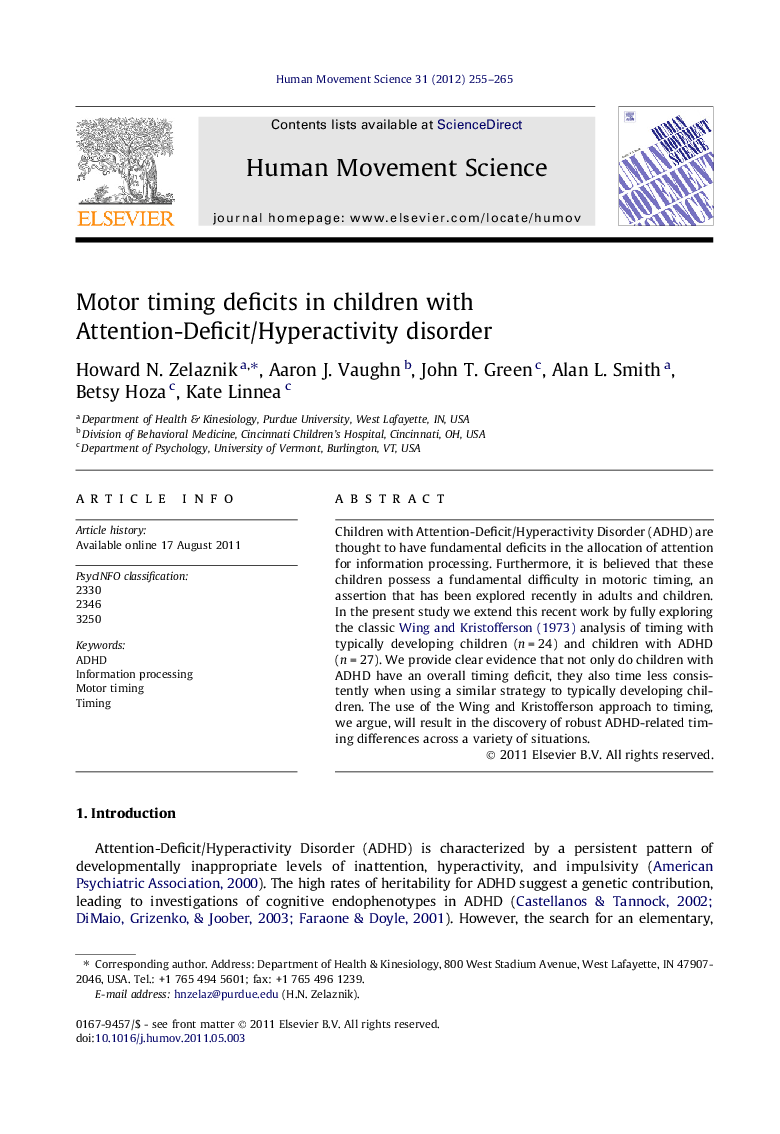| Article ID | Journal | Published Year | Pages | File Type |
|---|---|---|---|---|
| 928566 | Human Movement Science | 2012 | 11 Pages |
Children with Attention-Deficit/Hyperactivity Disorder (ADHD) are thought to have fundamental deficits in the allocation of attention for information processing. Furthermore, it is believed that these children possess a fundamental difficulty in motoric timing, an assertion that has been explored recently in adults and children. In the present study we extend this recent work by fully exploring the classic Wing and Kristofferson (1973) analysis of timing with typically developing children (n = 24) and children with ADHD (n = 27). We provide clear evidence that not only do children with ADHD have an overall timing deficit, they also time less consistently when using a similar strategy to typically developing children. The use of the Wing and Kristofferson approach to timing, we argue, will result in the discovery of robust ADHD-related timing differences across a variety of situations.
► Children with and without ADHD performed a simple tapping timing task. ► Children with ADHD performed with greater timing variability. ► Children with ADHD exhibit lack of consistency in timing strategy. ► This timing difference is observed even when strategy is controlled for.
